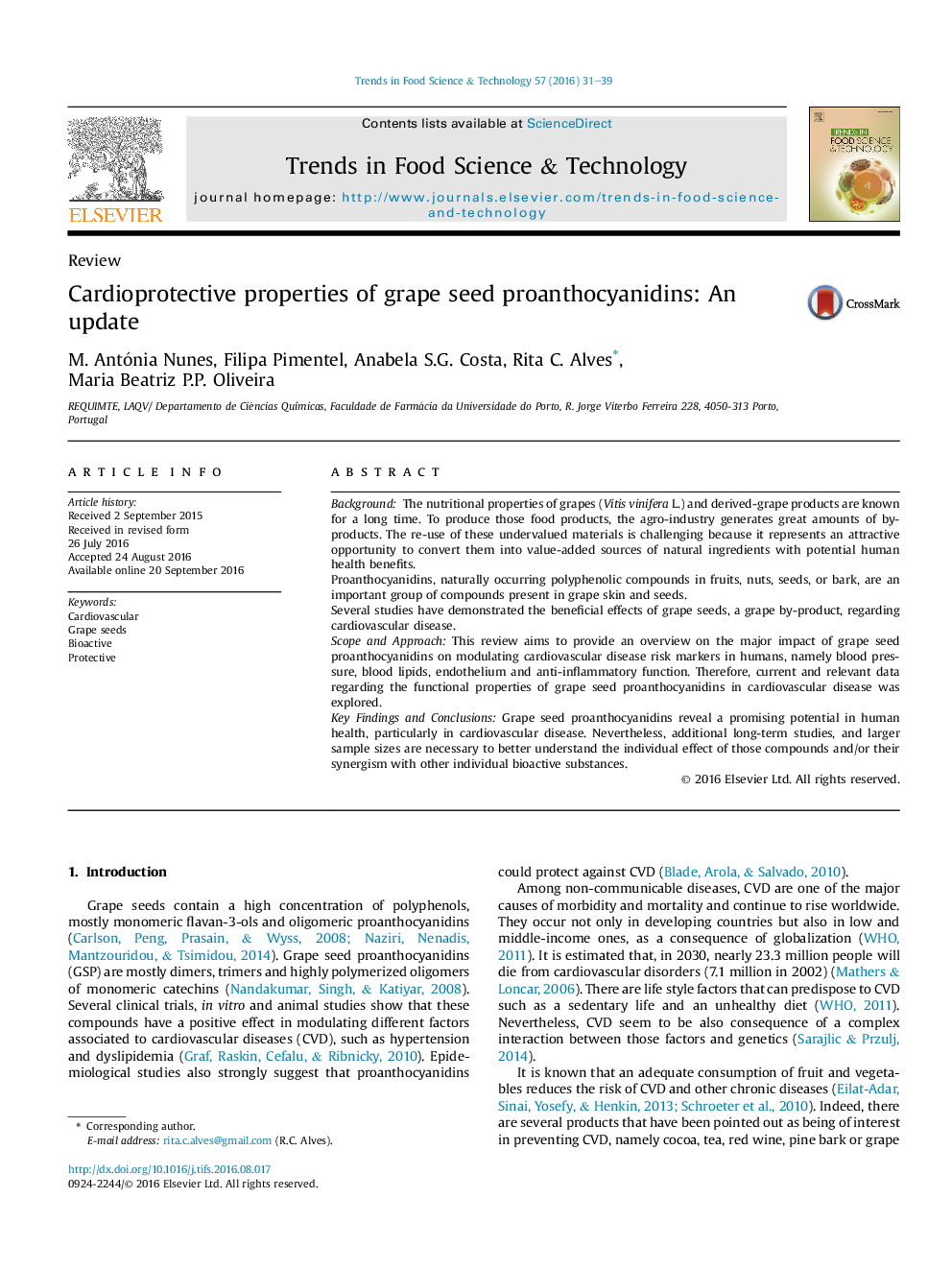| Article ID | Journal | Published Year | Pages | File Type |
|---|---|---|---|---|
| 5523842 | Trends in Food Science & Technology | 2016 | 9 Pages |
â¢Grape pomace is an abundant by-product of winery agro-industry.â¢Grape seeds, separated from the pomace, are a rich source of proanthocyanidins.â¢Proanthocyanidins can have a positive effect on cardiovascular disease prevention.
BackgroundThe nutritional properties of grapes (Vitis vinifera L.) and derived-grape products are known for a long time. To produce those food products, the agro-industry generates great amounts of by-products. The re-use of these undervalued materials is challenging because it represents an attractive opportunity to convert them into value-added sources of natural ingredients with potential human health benefits.Proanthocyanidins, naturally occurring polyphenolic compounds in fruits, nuts, seeds, or bark, are an important group of compounds present in grape skin and seeds.Several studies have demonstrated the beneficial effects of grape seeds, a grape by-product, regarding cardiovascular disease.Scope and ApproachThis review aims to provide an overview on the major impact of grape seed proanthocyanidins on modulating cardiovascular disease risk markers in humans, namely blood pressure, blood lipids, endothelium and anti-inflammatory function. Therefore, current and relevant data regarding the functional properties of grape seed proanthocyanidins in cardiovascular disease was explored.Key Findings and ConclusionsGrape seed proanthocyanidins reveal a promising potential in human health, particularly in cardiovascular disease. Nevertheless, additional long-term studies, and larger sample sizes are necessary to better understand the individual effect of those compounds and/or their synergism with other individual bioactive substances.
